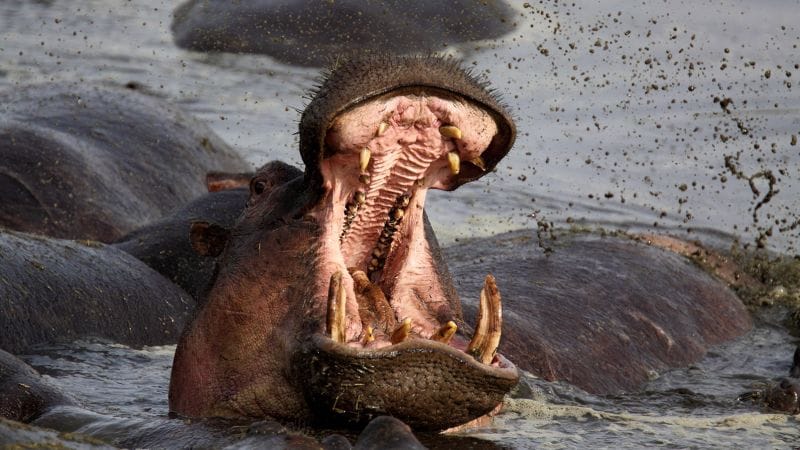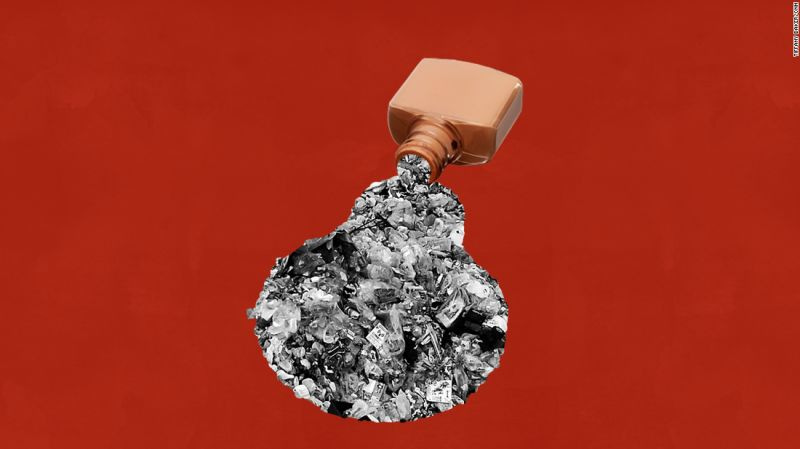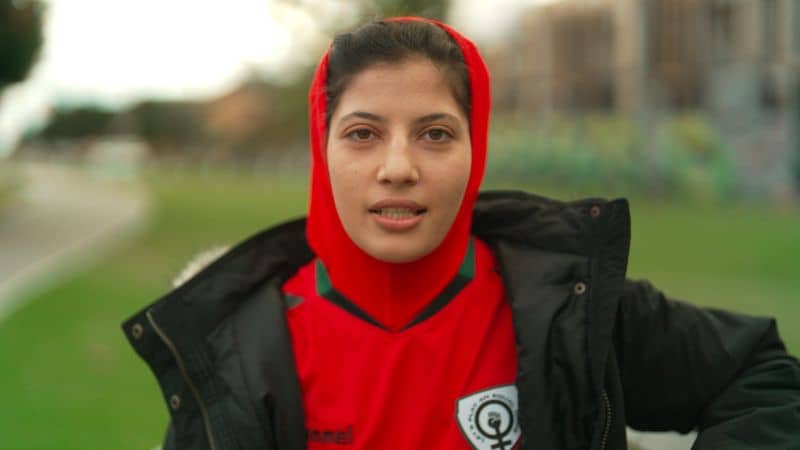“Bringing Mark home has been a top priority for President Biden and his national security team,” the official said. Haji Bashir Noorzai, a prominent member of the Taliban, who was in prison
CNN
—
Before a ball was even hit at this year’s US Open, many would have predicted three of the four semifinalists in the men’s draw.
Novak Djokovic, Carlos Alcaraz and Daniil Medvedev have all been at this stage before. All have won at least one grand slam and the trio occupy the top three ranks in the world.
Then there is American hopeful Ben Shelton. In truth, not many would have predicted the 20-year-old would make it this far in New York, but his place in the semifinals has been no fluke.
With his booming serve and powerful ground strokes, the world No. 47 has certainly demonstrated his potential to sit among the sport’s elite, but he will have to find new levels to book his place in the final.
Djokovic and Shelton kick off proceedings in Arthur Ashe Stadium at 3 p.m. ET on Friday, with Medvedev taking on Alcaraz afterwards.
Viewers in the US can watch all the action on ESPN, while Sky Sports will broadcast the matches in the UK.
After beating compatriot Frances Tiafoe in the last round, Shelton set up a tie with arguably the greatest player to ever play the game, Djokovic.
The Serbian is bidding to win his fourth US Open title and his 24th grand slam overall. Once again, he’s been in superior form at the tournament and will likely test Shelton like he’s never been tested before as they meet for the first time.
However, with the home crowd behind him, Shelton is hoping he can surprise a few people in Friday’s semifinal.
“I think that whenever you play somebody for the first time and someone who has been in this situation so many times and come out victorious so many times, that’s in the back of your head,” Shelton admitted.
“I also think it’s an advantage with my game style playing someone who’s never played me before.
“I think that I can bring some things to the table that maybe you don’t see in your normal match.”
Shelton has enjoyed a quite remarkable 12 months since making his grand slam debut at last year’s US Open, where he lost in the first round.
He broke into the world top 100 later that year without ever playing outside of the US, before starting his 2023 with a quarterfinal run at the Australian Open.

Coached by his father, the youngster has only continued to improve and is now the youngest American man to reach a singles semifinal since 1992.
“I think the mental has improved more than the physical,” Shelton told reporters, speaking about his development.
“There’s plenty of times where I could have gone over to my box today and said, ‘Guys, I’m cooked. I’m tired. I don’t know if I can go anymore.’
“Instead, I told myself, ‘I’m fine and he’s feeling it too.’ I think being able to flip it in your head is more than half the battle.”
Djokovic, playing in his 47th grand slam semifinal, will be the favorite to progress on Friday, but he’ll certainly be made to work for it.
The carefree Shelton, who is 16 years younger than his opponent, has nothing to lose and will therefore have license to take it to Djokovic.
With the “brutal” heat already testing players at this stage of the tournament, veteran Djokovic knows he needs to plan for a battle.
“I have to have an approach that is different from what it was 10 years ago,” he told reporters about adapting his game as a 36-year-old.
“I’m the father of two children, a lot of things are happening off the court that are obviously part of my life that affect me in one way or another, my mental state, my emotional state.
“I need to know how to handle all of these things and create a formula that works. So far, so good.”
The other semifinal will see world No. 1 Alcaraz face Russian third seed Medvedev.
The pair have won the last two US Open titles between them, Alcaraz last year and Medvedev in 2021, and have both looked sharp over the last two weeks.
Spain’s Alcaraz will have the added pressure of being reigning champion, but it’s something he’s had to quickly get used to over the past 12 months.
His win at Flushing Meadows in 2022 announced the Spaniard as a global superstar and he’s gone from contender to favorite in almost every tournament he plays.
“Last year, I was facing my first semifinal of a grand slam. Now, I’m facing my fourth one,” Alcaraz told reporters.
“I feel like I’m a totally different player. I feel like I’m more mature. I deal better with the pressure.”

Medvedev, meanwhile, has been around much longer, but is also surfing a wave of momentum in recent weeks.
After a disappointing third-round exit at the Australian Open, the 27-year-old has turned around his form and has gone on to win five titles so far in 2023.
Despite struggling with the extreme heat during his semifinal battle with Andrey Rublev, Medvedev is producing some impressive performances and looks to be a very real threat to Alcaraz.
“That’s how tennis is. I think that’s how sometimes it can be in life, many things can happen, and you can be disappointed,” Medvedev told reporters.
“Then the next day is a new day and something good can happen.”
Don't Miss
CNN — Paul Templer was living his best life. He was 28 and conducting tours in his native Zimbabwe, with
CNN — Coco Gauff was ruthless and totally dominant in her US Open quarterfinal against Jelena Ostapenko, dropping just two
CNN — The escalating climate crisis is shifting many people’s purchasing patterns and this extends to the $500 billion dollar
CNN
—
Jimmy Lippert Thyden says he always knew he was adopted. He also knew that he had been born not in the United States, but in Chile. Raised in Virginia by very loving and committed adoptive parents, he says he never lacked anything. The 42-year-old who served in the US Marines is now an attorney who is married and has two young daughters.
“I was told that I was given up for adoption out of love,” Thyden said. “Given by a mother who loved me and wanted the best for me: a life full of opportunity, education and meaning.”
That all started to change in 2012 when his adoptive mother gave him his adoption paperwork as he was preparing to deploy to Afghanistan. Thyden says that when he started looking closely at the adoption files, he found out that there were many discrepancies and inconsistencies.
“There were three or four different accounts of a story that were just so divergent that they could not all be true,” Thyden told CNN.
There was one document that said he had no known father or mother. Another provided the name of a biological mother and her address. A third document specified the baby had no living relatives, and a fourth stated that he had been given up for adoption days after birth. Yet another document said he had been given up for adoption when he was two years old.
For years, Thyden wondered about his origins. He wanted to know more but didn’t know where to begin or who to reach out to in Chile.
Thyden says it was not until a few months ago, when his wife read about the case of Scott Lieberman, that he became actively engaged in uncovering the truth about his adoption.
As CNN reported in May, Lieberman, the 42-year-old American from San Francisco, had also been adopted from Chile and had recently found out that he had been stolen as a baby. That’s how Thyden learned about “Nos Buscamos” (We Search for Each Other), a Chilean non-profit organization devoted to helping people stolen as babies find their biological parents and families.
During the dictatorship of General Augusto Pinochet, from 1973 to 1990, many babies were funneled to adoption agencies. Some of the children came from rich families, who in many cases gave up babies born out of wedlock. Other babies from poorer backgrounds were simply stolen.
In the last decade, CNN has documented multiple cases of Chilean babies who were stolen at birth. Authorities in the country say priests, nuns, doctors, nurses and others conspired to carry out illegal adoptions, with the main motive being profit.
Chilean officials say the number of stolen babies could be in the thousands, but the country’s investigation into the controversial adoptions has languished. Some who took part in the illegal adoptions have died. Many clinics or hospitals where the babies were allegedly stolen no longer exist.
After reaching out to “Nos Buscamos,” Thyden says he got an email the next day from its director, Constanza del Río, who told him to call her right away. She suggested a DNA test, which he did on April 17. With the help of MyHeritage, an online genealogy company, Thyden got a match within a few weeks. When the match came back, del Río says she knew the next step was making a phone call to María Angélica González, 69, a woman who had believed for decades her son had died shortly after being born.
“She could not believe it. She thought it was a joke in poor taste because she had been told her premature baby boy had died,” del Río said. Del Río says González had been told the baby’s body had been disposed of in the trash. During the Pinochet dictatorship, when several thousand people were killed and disappeared, asking too many questions or protesting in a loud way could be dangerous. (Chile will mark the 50th anniversary of the coup that brought Pinochet to power on September 11.)
Learning the truth has been bittersweet for Thyden. He’s happy to finally know his true origins but sad about what his biological mother went through.
“She didn’t know about me because I was taken from her at birth, and she was told that I was dead and when she asked for my body, they told her that they had disposed of it. And so, we’ve never held each other, we’ve never hugged,” Thyden said.
After three agonizing months, he was finally able to travel to Chile to give his biological mother the hug that had to wait for 42 years. When they met in the southern city of Valdivia in mid-August, he was finally able to utter the words he had been rehearsing for weeks. “Hola, mamá!,” he said when they finally embraced.
“I’m 42 years old and I’m meeting her and hugging her and holding her for the very first time. That’s so unnatural!” Thyden said later, reflecting on the moment. “It kind of brought me to grips with the wrong that had been done. And then, to know her is to love her. She is a sweet, caring, loving woman of faith and, to know that someone would harm her […] who could hurt such a little, sweet, innocent woman.”
Once in Valdivia, and after also meeting his extended family, there was a very special birthday party that had been organized for him in advance. There were 42 balloons symbolizing the 42 years that he could not celebrate a birthday party with his biological family. As he popped one by one, the family he never knew he had shouted out the number: uno, dos, tres…
“I felt like a lost puzzle piece, a piece that had been lost for 42 years and, in that moment, I felt like I was where I was meant to be, and it felt very much normal, almost as if no time had passed once we got connected,” Thyden said later.
Thyden says that learning the truth has also been painful because his adoptive parents were also lied to and victimized. He says his adoptive parents first contacted an adoption agency in Virginia and specifically asked to adopt a child the right way, through a reputable agency, something that they put in writing.
“They never believed for one second that they were buying a child. They never would have done that,” he said.
Asked about what might have been, Thyden says it’s impossible to know.
“My life came to a T intersection, where I could go either left or right. And instead of going right, it went left. But instead of being the person behind the steering wheel, instead of being a passenger in that car, aware of what was happening, I was the baby in the trunk,” Thyden said.
“It’s not wasted on me that I recognize that I’m blessed in the fact that I have loving families on both sides of the equator. But I don’t know that I wouldn’t have been a lawyer. I don’t know that I wouldn’t have served in the military. Are those things that I did because of where I was or are those things that I did because they are at the core of who I am?,” said Thyden, who pointed out that he says “mom” or “mother” when he’s speaking about his American adoptive mother and “mamá” when he refers to his Chilean, biological mother.
In the end, he says, the wisdom about what happened to him came from his five-year-old daughter, who told him if a bad thing hadn’t happened, she wouldn’t be here. And her father, she told him, has not one but two families who love him deeply.
Don't Miss
CNN — Before a ball was even hit at this year’s US Open, many would have predicted three of the
ATLANTA, Ga. (Atlanta News First) – Thomaston police are investigating after thieves allegedly stole two Ford Mustang cars totaling nearly
ASHFORD, CT (WFSB) – An animal control officer reported that a child was bitten by a raccoon in Ashford. “It
“Bringing Mark home has been a top priority for President Biden and his national security team,” the official said.
Haji Bashir Noorzai, a prominent member of the Taliban, who was in prison in the US on drug trafficking charges for 17 years, was granted clemency as part of the deal, the official said.
Frerichs, a Navy veteran from Illinois, was kidnapped in late January 2020 while he was doing construction contract work in Afghanistan. He was believed to be held by the Haqqani network, which is a faction of the Taliban. He was missing for less than a month before the US signed a peace deal with the Taliban.
Frerichs was able to walk on his own onto the aircraft, a source familiar with the matter said, and his physical and mental condition appear good. He is currently in Doha, Qatar.
Frerichs’ family praised Biden for securing his release, with his sister, Charlene Cakora, saying in a statement, “there were some folks arguing against the deal that brought Mark home, but President Biden did what was right. He saved the life of an innocent American veteran.”
“I am so happy to hear that my brother is safe and on his way home to us. Our family has prayed for this each day of the more than 31 months he has been a hostage,” Cakora said. “We never gave up hope that he would survive and come home safely to us.”
Earlier this year, The New Yorker published a video of Frerichs pleading for his release — the first time the Illinois native had been seen in years.
“I’ve been patiently waiting my release,” Frerichs says in the brief video, which he says is being recorded on November 28, 2021.
Months of negotiations
The Biden administration undertook months of negotiations with the Taliban to secure Frerichs’ freedom, a senior administration official said Monday, and the President decided in June to grant clemency to Noorzai if it would lead to the captive American’s release.
Speaking on a call with reporters, the official said it became clear that releasing Noorzai was “the key to securing Mark’s overdue freedom,” but the decision on clemency for the Afghan drug trafficker was a “difficult” one.
The administration does not see an equivalency between Noorzai, who was carrying out a 17-year sentence in the US, and Frerichs. Noorzai was not held at Guantanamo Bay, despite reports saying he was, the official said.
“We consulted with experts across the US government, who assessed that Noorzai’s (release) to Afghanistan would not materially change any risk to Americans emanating from the country or the nature of the drug trade there,” the official said.
“As we also said publicly at the time, we told the Taliban immediately after the strike, that we would hold them directly responsible if any harm were to come to Mark, and that the best way they might begin to rebuild trust with the United States, with the world, was to immediately release Mark,” the official said.
The official said the window of opportunity for the swap finally presented itself this month, and the administration “acted very quickly.” But they would not say where Frerichs had been held during his more than two years of captivity, nor would they say if the US had given the Taliban anything else for Frerichs’ release.
A second senior administration official said the US would continue to make clear to the Taliban that they must end hostage taking if they are to gain recognition by the international community.
Don't Miss
CNN — Before a ball was even hit at this year’s US Open, many would have predicted three of the
How Afghanistan women’s football team made it to Australia Playing football for your national team is a dream for many,
CNN — Jimmy Lippert Thyden says he always knew he was adopted. He also knew that he had been born

Mexico is ready to hit the U.S. where it hurts: Corn.
Mexico is one of the top buyers of American corn in the world today. And Mexican senator Armando Rios Piter, who leads a congressional committee on foreign relations, says he will introduce a bill this week where Mexico will buy corn from Brazil and Argentina instead of the United States.
It’s one of the first signs of potential concrete action from Mexico in response to President Trump’s threats against the country.
“I’m going to send a bill for the corn that we are buying in the Midwest and…change to Brazil or Argentina,” Rios Piter, 43, told told CNN’s Leyla Santiago on Sunday at an anti-Trump protest in Mexico City.
He added: It’s a “good way to tell them that this hostile relationship has consequences, hope that it changes.”
American corn goes into a lot of the country’s food. In Mexico City, from fine dining restaurants to taco stands on the street, corn-based favorites like tacos can be found everywhere.
Related: Mexican farmer’s daughter: NAFTA destroyed us
America is also the world’s largest producer and exporter of corn. American corn shipments to Mexico have catapulted since NAFTA, a free trade deal signed between Mexico, America and Canada.
American farmers sent $2.4 billion of corn to Mexico in 2015, the most recent year of available data. In 1995, the year after NAFTA became law, corn exports to Mexico were a mere $391 million.
Experts say such a bill would be very costly to U.S. farmers.
“If we do indeed see a trade war where Mexico starts buying from Brazil…we’re going to see it affect the corn market and ripple out to the rest of the ag economy,” says Darin Newsom, senior analyst at DTN, an agricultural management firm.
Rios Piter’s bill is another sign of Mexico’s willingness to respond to Trump’s threats. Trump wants to make Mexico pay for a wall on the border, and he’s threatened taxes on Mexican imports ranging from 20% to 35%.
Trump also wants to renegotiate NAFTA. He blames it for a flood of manufacturing jobs to Mexico. A nonpartisan congressional research report found that not to be true.
Related: Mexico doubles down on Trump ‘contingency plan’
Still, Trump says he wants a better trade deal for the American worker — though he hasn’t said what a better deal looks like.
All sides signaled two weeks ago that negotiations would begin in May after a 90-day consultation period.
But Trump says if negotiations don’t bear the deal he wants, he threatens to withdraw from NAFTA.
Such tough talk isn’t received well by Mexican leaders like Rios Piter. He’s not alone. Mexico’s economy minister, Ildefonso Guajardo, said in January Mexico would respond “immediately” to any tariffs from Trump.
“It’s very clear that we have to be prepared to immediately be able to neutralize the impact of a measure of that nature,” Guajardo said Jan. 13 on a Mexican news show.
–Shasta Darlington contributed reporting to this story
CNNMoney (Mexico City) First published February 13, 2017: 12:06 PM ET
Don't Miss
CNN — Before a ball was even hit at this year’s US Open, many would have predicted three of the
CNN — Jimmy Lippert Thyden says he always knew he was adopted. He also knew that he had been born
CNN — Mexico is a safer country than the United States, Mexican President Andrés Manuel López Obrador argued on Monday,














